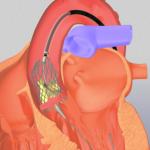The public forum is dominated by discussions surrounding access to medical care. In part, calls for expanded “health care” abound with the term often a misnomer.
CMS
Not all individuals have the same illnesses, and even for the same chronic diseases, how any patient is affected varies. In determining payments for care, Medicare introduced modifiers to gauge and report on the associated severity of illness.
It is time to question the boondoggle that is and will be the implementation of the World Health Organization-generated International Classification of Diseases, Eleventh Revision (
Does Case Volume Promote Safety While Reducing Access? CMS and Physicians Wrestle With The Trade-Off
Transcatheter aortic valve replacement, TAVR, is a far-less invasive means of replacing the heart valve connecting the heart with the aorta, the body’s main artery.
In the not-so-new realm of nontraditional health coverage, the Centers for Medicare and Medicaid Services (CMS) is expanding their Medicare Advantage plan to include benefits that meet patients “unique health needs” and improve “their quality of l
Welcome to my first in a new series entitled: The Shackling of the Physician. It was that or “limitless inane continuous regulations and impositions imparted on the doctor against his/her will without his/her input that ser
In the first article of this series I discussed the LAST of four measures that the Center for Medicare Services (CMS) uses to
The Centers for Medicare Services (CMS) released its ratings of our nation’s hospitals last week. This caused considerable consternation among hospitals and academic medical centers. Here is the breakdown of the star ratings: (1)
The Centers for Medicare and Medicaid Ser
Following the release of a preliminary plan by the Centers for Medicare and Medicaid Services (CMS) last November,








